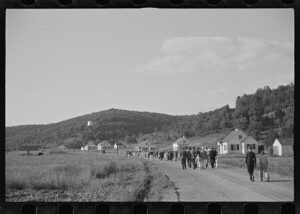My father, who died when I was eight, was intent on making sure that I was baptized in the lore and legend of The Great War of Northern Aggression and carried the undeniable pedigree of a true son of the Old South.
He was a published Mississippi historian by trade, researching and documenting the political, social, and economic development of Mississippi. However, his private moments among dusty archives and yellowed documents were devoted to the rabid scholarly pursuit of the leaders of the Confederate States Army and their stories. The chivalrous art of war in the 1860s fascinated him and he endeavored through hundreds of hours of painstaking research to reveal the intrinsically human facets of these men that chose to defy of the United States Government by taking up what they believed was a just and honorable cause.
As a result, he gazed upon my cherubic newborn face swaddled in soft cotton and deemed that I should receive a name equally fitting of Southern high society and hoi polloi alike. Summoning every ounce of patriarchal authority that he could lay hands on, he looked my mother dead in the eye and proposed that I leave Lee County General Hospital forever more known as Bushrod Beauregard. Family and friends, he quipped quite simply, would call me Beau.
Brigadier General Bushrod Rust Johnson, a West Point graduate and veteran of the Mexican and Seminole Wars, commanded a brigade that included Lt. Colonel A.K. Blythe’s 44th Mississippi Infantry as well as other fighting elements raised in the Magnolia State. General Johnson may hold a smaller footnote in history than Beauregard, but he made up for it by providing an air of formal whimsy to my impending first name.
Pierre Gustav Toutant Beauregard, in addition to being the source of my tentative middle name, was known as “The Little Napoleon,” “The Hero of Fort Sumter,” and “The Little Creole.” In charge of South Carolinian rebels in the Charleston area during the spring of 1861, he engineered victory and raised the Stars and Bars over Fort Sumter, thus beginning the conflict in earnest.
Both fought valiantly in the battles for Shiloh, Tennessee, and around my hometown of Corinth, Mississippi, some of the most intense and bloodiest action of the entire war. I assume this reason my father chose Johnson and Beauregard as my intended namesakes. However, if the oddities within naming conventions of high-ranking officers in the Confederate States Army were the only qualifier, I could have been named Burgwyn Heron just as easily.
Sadly, my father did not see his wishes fulfilled. When she came to the realization that his intentions were bona fide, my sainted mother balked like a sweaty mule at the idea of her first born being called by a name that invoked visions of cotton farms and blue tick hounds. She raised the roof in protest and refused to sign her name and validate the prepared record of birth. So, I emerged from the hospital known only as Baby Boy and remained so for the better part of two weeks. Once home, a battle raged night and day over my naming rights. Relatives were dispatched to the scene to mediate. In the end, cooler heads prevailed and a compromise was struck.
My Uncle Puz, a Methodist minister and bearer of another truly southern name that referenced his resemblance to Barney Google’s comic strip baby, Puzzems, christened me Thomas Andrew as a result of the deal fleshed out by my parents. Thomas, in memoriam of my bootlegging scalawag of a paternal grandfather, Thomas Doc, and, Andrew, after noted Indian exterminator, slave owner, land speculator, dueling murderer, and the seventh President of these United States, Andrew Jackson. I believe my mother, overly taxed by the drama of the naming scandal, finally capitulated and seized upon the mention of the relatively banal names, regardless of their thought provoking associations.
Given a voice at two weeks of age and the knowledge I possess now, I would have demanded my affirmative vote on behalf of Bushrod Beauregard be recorded. Perhaps it is not too late to resurrect the grand name for myself. After all, I have long passed the pain and aguish of grade school taunting. Living in California against my better judgment nowadays, I believe I would find great pleasure in the wide eyes and long faces such a name would generate at the Department of Motor Vehicles and the Post Office.
It intrigues me how life might be for a Bushrod Beauregard in this day and age. If nothing else, the name would live on in the vestiges of my family history long after I am gone and forgotten. Perhaps it would offer a sensible explanation as to why, at an advanced age, I might have taken to the green benches lining Court Square, resplendently clad in mutton chop sideburns, gray felt Kepi, piped topcoat, and muddy cavalry boots, with the singular intent of spending my remaining days whittling cedar scraps down to piles aromatic shavings.




